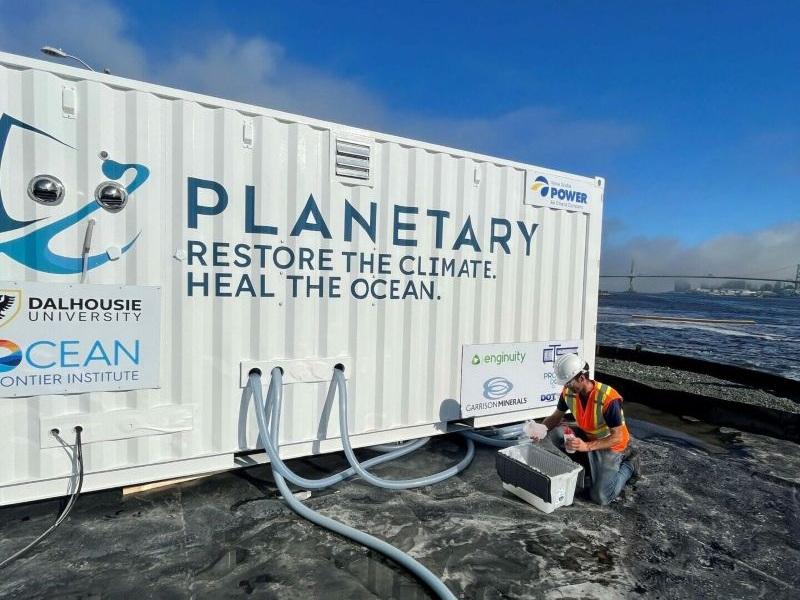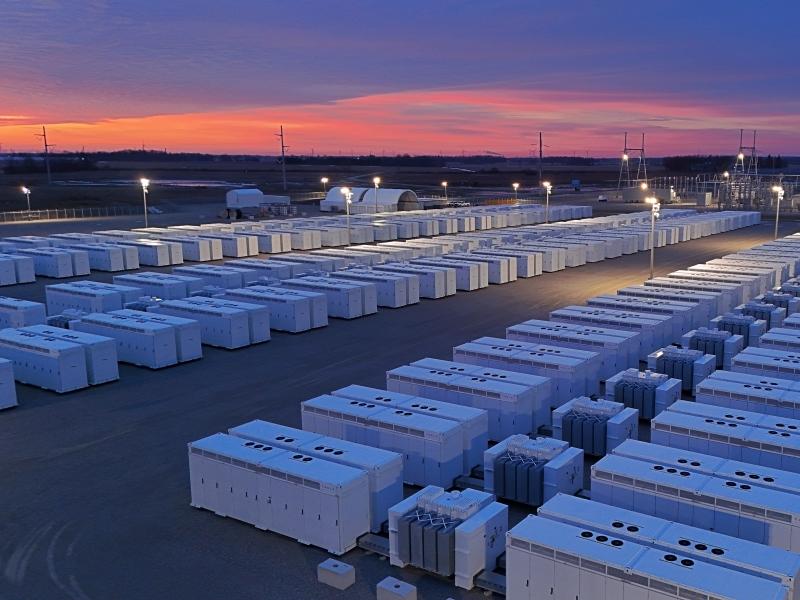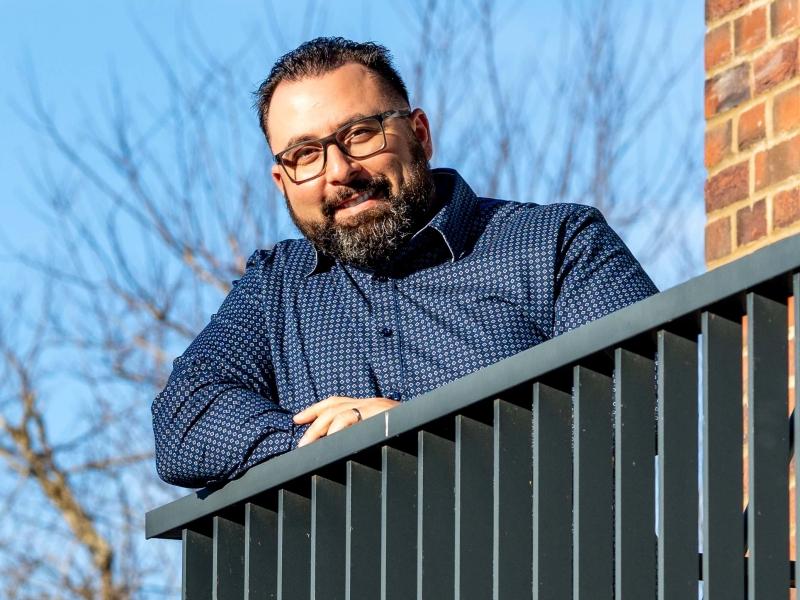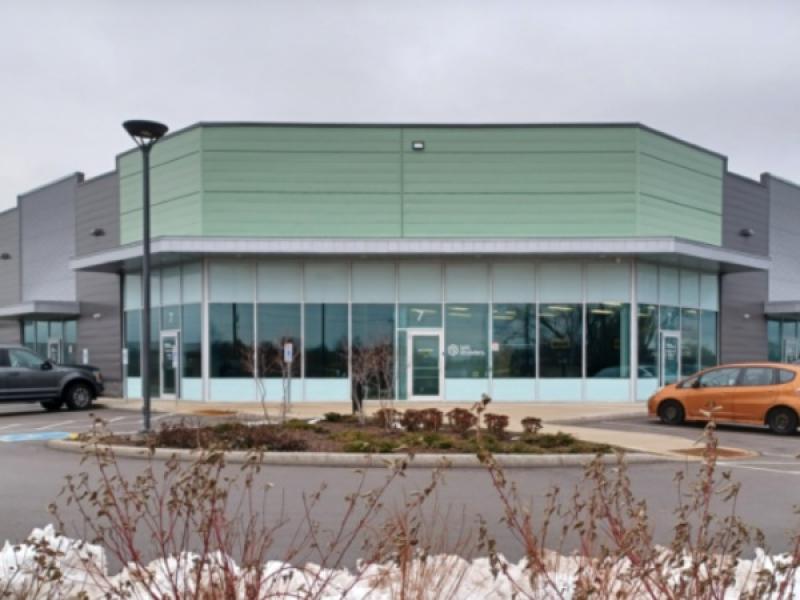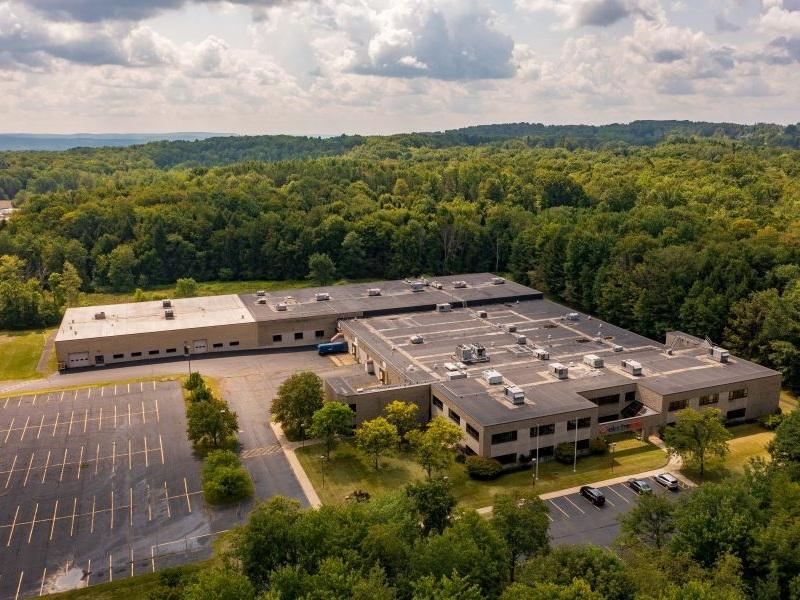
Electrovaya Inc. (ELVA-T) is poised for a big step-up as it awaits the completion of its battery cell factory in Jamestown, N.Y. and prepares to extend into new use cases.
The Mississauga-based battery cell developer and manufacturer is behind technology that it claims makes its batteries safer and longer-lasting compared to most in the sector.
Primarily serving heavy-duty applications such as powering robots in warehouses, CEO Raj DasGupta said the company is branching out into sectors such as energy storage, airport ground equipment, and heavy industries like mining, construction, defence and commercial trucks.
With its upcoming manufacturing site in the U.S., which has roughly double the production capacity of its facility in Mississauga, the company will “benefit from it, not just from the reasons of having better vertical integration, better scale, et cetera . . . but also strategic customers want to see that domestic manufacturing element,” he said in an interview with Sustainable Biz Canada.
“We're definitely on the right track as a business. And we hope the market takes notice as we continue to meet all these milestones.”
Electrovaya’s batteries
Central to the company is its technology named Infinity that improves battery safety and longevity. Using a ceramic separator membrane, battery cells can operate consistently at high temperatures. To date, the company’s membranes have been deployed in approximately 30,000 battery systems with no failures, DasGupta said.
Most batteries’ capacity degrades significantly after around 1,000 charge cycles. Electrovaya has managed to raise that limit by ten times, DasGupta added, substantially elevating a battery's lifespan.
Even the energy density of its batteries has been moving up. Its first Infinity cell had a capacity of 40 ampere-hours, now refined to over 50 ampere-hours.
Rather than servicing the passenger electric vehicle industry or consumer electronics, the company has settled on “high-value applications” such as warehouse robots and material handling.
“The automotive space is a low-margin business” he said, “. . . but may not necessarily pay a premium for that performance,” regarding why Electrovaya has avoided the passenger vehicle sector.
Another market the company is interested in is the grid-scale energy storage sector. It will soon be announcing a megawatt-hour energy storage product, aimed at customers like companies operating data centres.
Large retailers both digital and brick and mortar locations are among Electrovaya’s clients, using its batteries in warehouse vehicles. Electrovaya counts Walmart Canada as one of its early customers. An unnamed Fortune 100 e-commerce customer that operates in Canada and the U.S. has ordered $20 million (all figures US) of battery systems from the company as of fiscal year 2025.
The Jamestown facility
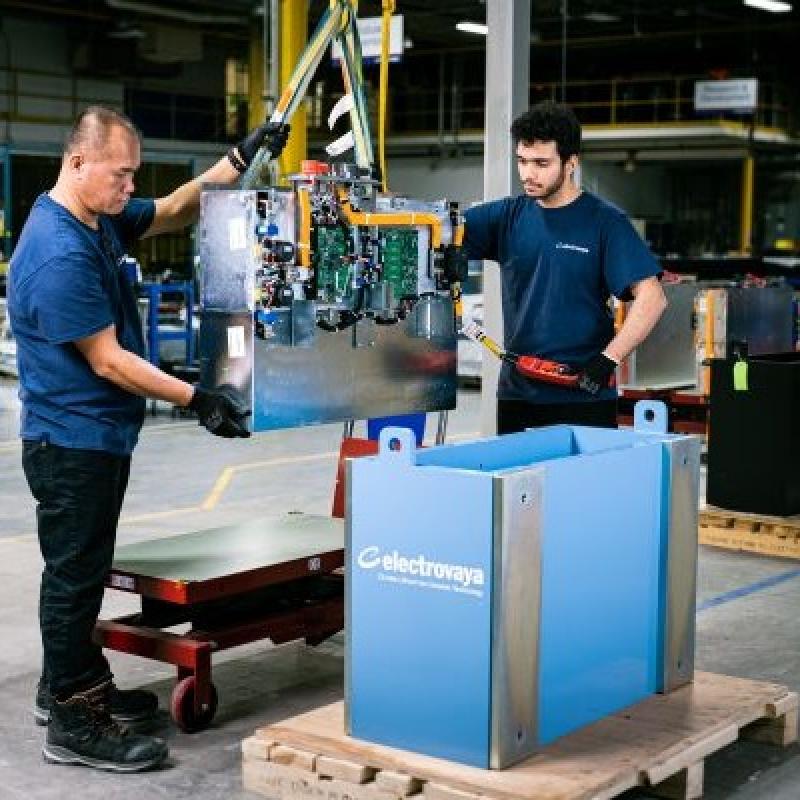
As the company grows, it is also seeking to keep up its battery cell manufacturing capacity. In Jamestown, a city in eastern New York, Electrovaya is developing a 137,000-square-foot building on a 52-acre site that will have approximately double the size floor space and manufacturing capability of its Mississauga factory.
To compare: the Mississauga manufacturing site can produce around $100-million worth of battery cells per year; Electrovaya is setting up for $200 million in Jamestown.
Under construction today, the company anticipates the work will be finished in the spring of 2026 and the facility making battery cells in the summer.
When reflecting on the development of the Jamestown site, DasGupta said the main challenge was securing the financing. But by closing over $80 million in financing, made up of a $50.8-million loan from the Export-Import Bank of the United States, a $20-million credit facility from BMO and $12-million in equity capital, Electrovaya is in a safer spot.
For a Canadian company establishing a large manufacturing operation in the U.S., the timing could not be better. With heightened tariffs between Canada and the U.S. and a greater demand for domestic production in the U.S., Electrovaya is teed up to benefit.
The “general trend is for customers and governments to develop domestic sources for this type of industry we’re in, which is strategic in nature,” DasGupta said.
Even the eventual pullback of clean energy tax credits by the U.S. federal government will not directly impact Electrovaya much, he added. The battery production tax credit is retained in the July budget bill signed by U.S. President Donald Trump, “so when Jamestown starts commercial shipments of lithium-ion cells, we will be able to tap some of these production tax credits,” DasGupta said.
If demand for its battery cells continues to rise, he said Electrovaya could leverage the vacant land next to the Jamestown facility for an expansion, though he was unable to provide any details as it is too early for specific plans.


